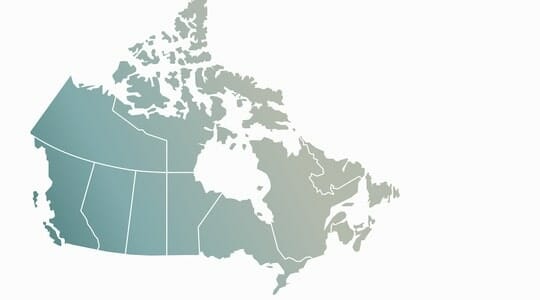Summary
- Until June 30, 2020, travel to Canada will be restricted for all foreign nationals coming from any country other than the United States (U.S.). Other restrictions apply to those travelling from the U.S.
- These new restrictions prohibit any foreign national, including U.S. nationals, from entering Canada for optional or discretionary purposes (non-essential travel).
- Any foreign national is prohibited from entering Canada by the air and marine modes if they arrive from a foreign country other than the U.S., other than the exceptions listed below.
Exemption to Travel Restrictions
The following individuals may be considered exempt from Canada’s travel restrictions:
- Foreign national, including U.S. citizens, who have been in the U.S. and Canada for more than 14 days (as per the order governing travel from the U.S. to Canada)
- immediate family member of Canadian citizens and permanent residents
- person registered as an Indian under the Indian Act
- person who is authorized, in writing, by a consular officer of the Government of Canada to enter Canada for the purpose of reuniting immediate family members
- airline or marine crew member
- accredited diplomat and immediate family members, including representative from the United Nations and international organizations for which Canada is part of
- foreign national travelling at the invitation of the Canadian government for the purpose of assisting in the COVID-19 response
- person who arrives by means of an aircraft operated by the Canadian Forces or the Department of National Defence
- member of the Canadian military, visiting forces, and their family members
- protected person presenting a convention refugee travel document
- a French citizen who resides in St. Pierre and Miquelon (SPM) who has only been in SPM, the U.S. or Canada during the period of 14 days before the day on which they board
- person or any person in class of persons who, in the opinion of Canada’s Chief Public Health Officer does not pose a risk of significant harm to the public health, or will provide essential service while in Canada
- transiting passengers through Canada to another country
- transiting passengers will be subject to any travel bans and restrictions the third country has in place
- First Nations, including family members.
Land Borders
- US citizens, Legal Permanent Residents (LPRs), or visa holders may be denied entry to Canada if the purpose of entry is “non-essential,” or if they have been present in a coronavirus hot spot during the past 14 days, or show COVID-19 symptoms. Please consult your WR attorney for questions concerning what types of travel may be considered essential or non-essential.
- In response to the COVID-19 pandemic, Federal and Provincial guidelines for self-isolation and social distancing do not permit persons in Canada to travel to the U.S. border to apply for immigration status/services until further notice.
Self-Isolation Policies
- Generally, all travelers will be required to self-isolate if allowed entry into the country unless their activities are essential to the movement of goods and people.
Cargo & Goods Transportation
- Border restrictions will not apply to cargo and goods transportation.
More Resources
- Forbes, https://www.forbes.com/sites/andyjsemotiuk/2020/03/16/update-on-new-travel-bans-related-to-covid-19-outbreak/#12108b6c41d0
- New York Times, https://www.nytimes.com/article/coronavirus-travel-restrictions.html
- Canadian Government’s Response to COVID-19, https://www.canada.ca/en/public-health/services/diseases/2019-novel-coronavirus-infection/canadas-reponse.html


